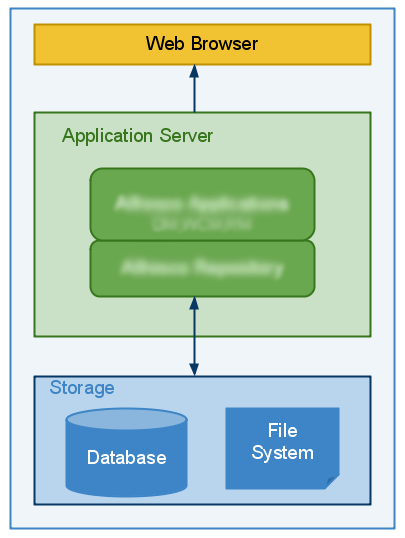tl;dr:
127 days of intensive self-study + pair programming = Programmer Job Offer.
Note: In September 2012, I set out full time to learn to code. This article is the culmination of my experience, which resulted in a job offer in January 2013.
My background is in working with amazing startups and technology companies focusing on sales and marketing. But, I wanted to do more, to build and to be at the core of building a product. On September 10, 2012 I began an adventure, a mission to teach myself to code.
Before I started my journey, I considered myself a very computer savvy, non-technical person; I understood the basics of the web, front-end design, and had run through a few Codecademy tutorials. But, I couldn’t code up a web page from scratch, had never interacted with a database, nor did I fully grasped the web stack.
Why Learning to Code Full Time?
Why did I decide to drop everything and learn to code full time? Learning to code part-time, in my free time, wasn’t sufficient for where I wanted to take my skills and understanding. I didn’t gain the breadth of knowledge or tool set I needed to do anything meaningful, while learning to code at night and on the weekends.
Also, the timeline didn’t make sense to me. Patience is not one of my virtues. To push myself above a novice programmer, I was looking at grinding away slowly in my spare time. I’m results driven and need to see a more immediate impact to keep me motivated.
Going full time removed time and work hurdles from my learning to code experience. I was fortunate to have built a business to a place where I had a financial cushion.
While it was successful, I was running full steam and exhausting myself. As a result, I either needed to expanded the business (hire more people) or refocus the strategy. After carefully analyzing the opportunity, I wasn’t attracted longterm to a B2B services business.
So I took the money and invested it in myself, paying myself a salary for three months while I dedicated 100% time to learning to program.
My Learning to Code Plan
I crafted my own plan to learn to code, with lots of help and insight from others. I learn by doing.
Therefore, I utilized a project based approach to learn to code. The first seven weeks I spent reading and completing various online tutorials. In week 8, I started working on a web app project of my own. This important step was to force me into more critical thinking.
I should have started writing my own code earlier. Starting on my first project was a rush. This euphoria was quickly followed by the realization of how lost I was.
But these mini-panic moments were actually helpful. Hitting a moment when I don’t know how to move the app forward, was actually learning opportunities (disguised as error messages) literally popping up on my screen.
This is as a good time as any to emphasize how much I relied on other people to learn. I was very fortunate to meet amazing developers who gave up time to help me out. Discussing code, pair programming, and line-by-line code reviews were the single most important steps in my entire process.
Big props to my mentor, Joe Goldberg, who guided me throughout the entire process.
Entering the Job Market
Heading into the 12th week, I felt my best opportunity for growth would require me to work full-time as a developer. My biggest strides occurred working alongside other developers.
Finding a suitable job opportunity was the most difficult aspect of this experience. I applied to entry-level jobs listed on job boards. I used my network extensively; I spoke to developer friends, folks from meetup groups, recruiters, and I responded to 63 Hacker News job listings. Companies in which I was interested simply didn’t have the resources or desire to train me. I was turned down many times.
As weeks passed, I was beginning to lose hope. I contacted Originate in Los Angeles, and they too didn’t have a place for me. I reached out directly on LinkedIn to Rob Mallery, an executive at Originate.
We jumped on a 20 minute call and he referred me to the recruiter who would ultimately find me the job offer. She knew of a few companies looking for junior developers. One comapny, a web development agency with 12 engineers, had an opening that in particular grabbed my attention. I was very under qualified as compared to the required skills, but the recruiter encouraged me to apply anyway.
The Interview
Based on my resume, I was invited in to interview. I spent the 24 hours leading up to the meeting prepping for questions.
Funny side story: When I arrived, there was a buzzer to enter the office space. However, when I hit it, there was no sound nor response. I knocked and hit the buzzer several more times without any response. I could see lights on inside and started to panic.
Wait. Was this my first test? I had read harrowing “Google-Amazon-style” interview tests that potential engineering hires underwent. My mind raced. Was I being tested right out of the gate?
Well, no it turns out the buzzer was just broken and another employee happened to appear and let me in.
To minimize this already growing post, I’ll cut short details regarding the interview process. If you’d like more specifics about the interview process, let me know in the comments.
Job Offer Result
I spoke to the recruiter that same afternoon, told her I thought it went well, and was told I would either way soon. The next morning she sent me email saying I was offered a junior developer role with a strong base salary, 401K match, 17 vacation days, and medical/dental/vision benefits.
Conclusion
So I’m a Junior Developer Engineer now, right? Well, the story isn’t that simple. After much contemplating, discussion with family, friends, and trusted mentors, and a serendipitous set of circumstances, I ultimately turned down the job offer. I’ll save my reasons for that decision for my next post.







